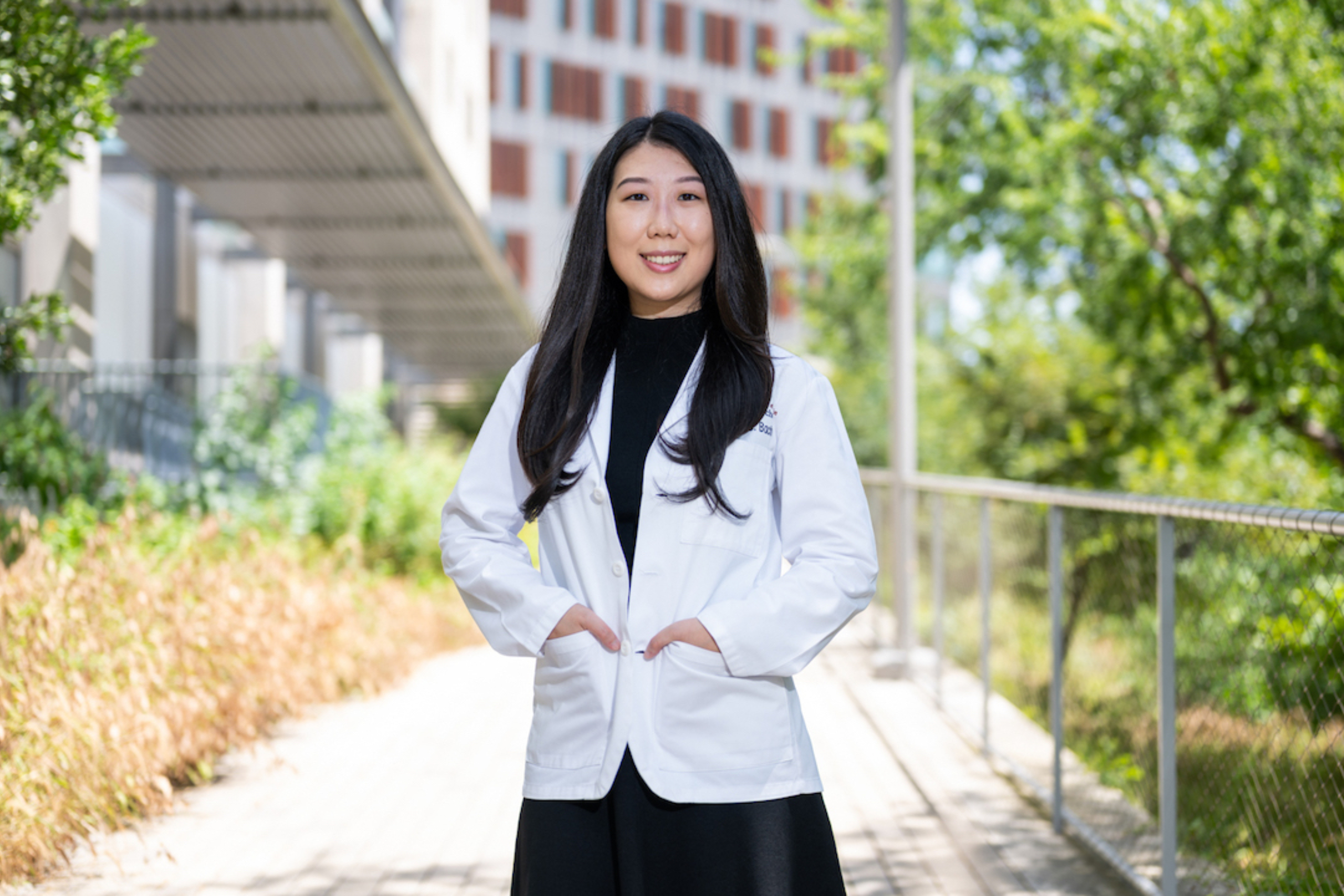From New York City to rural Illinois to suburban Lewisville, Texas, Michelle Bach has seen her fair share of health care settings across the ten cities she’s called home. Prior to medical school, she trained as an EMT and also cared for nursing home residents with chronic wound infections as a certified nursing assistant.
During her Growth Year — the third year of study at Dell Med in which students explore areas of interest and take on collaborative projects to improve health locally — Bach completed a distinction in research, where she brought her expertise to bear on improving care for patients with painful dermatologic conditions like hidradenitis suppurativa and chronic wounds.

Michelle Bach, Dell Med Class of 2024
“It has been an absolute privilege to train at Dell Med — a program that encourages students to identify, understand and address social determinants of health,” Bach says. “I have had the opportunity to learn from renowned faculty, residents and colleagues who challenge and support me as I grow as a clinician, researcher, student and advocate.”
You just finished your third year of medical school. What were some challenges you tackled?
I dedicated my third year of medical school toward understanding the impact of social determinants of health on patient care. At Dr. Venessa Pena-Robichaux’s weekly follicular disorders clinic, I helped care for patients with hidradenitis suppurativa, a chronic inflammatory skin condition. Patients would present with incredible pain from flares because their medication was denied by insurance. Frustrated by the constant battle between dermatologists, insurance and pharmaceutical companies, Dr. Pena-Robichaux and I designed a survey to learn about the experiences of other hidradenitis suppurativa specialists in the hopes that they could shed light on the solutions they created to advocate for their patients.
Every week during my third year, I spent my afternoons in Dr. Pedro Teixeira’s and Dr. Joseph DuBose’s clinics meeting with chronic wound infection patients undergoing amputations, who reminded me of the residents I cared for as a certified nursing assistant. I cherished each moment in clinic to listen to their stories and provide comprehensive care with the hope that patients would not have to receive another surgery. By creating an environment of compassion and trust, patients would feel comfortable sharing their challenges and experiences, which is the first step in finding ways to help patients navigate the health care system and get the individualized care they need.
Lastly, the mpox outbreak during my third year reminded me of the same fear and stigmatization surrounding the first Ebola patient in the U.S. who was admitted to a hospital just 15 minutes from the fire station where I trained as an EMT. As my community learned more about this “mysterious” Ebola virus, people became less fearful and more aware of misinformation. Mpox patients with painful lesions shared their fears of stigmatization because lesions were visible on their face and hands, and I realized how devastating visible diseases like these can be. To raise awareness about mpox and other poxviruses, Dr. Khang Nguyen, Dr. Dayna Diven and I chose to highlight the history and complexity of each virus through a clinical review that could be shared with the larger research community and the public.
How did your patients’ stories impact your path forward in medicine?
I am drawn to patients with dermatologic conditions because I have seen the impact of these conditions not only on patients’ physical health but also on their identities and relationships. Patients with chronic wounds wore layers of clothing during scorching summers to hide their wounds. A patient with hidradenitis suppurativa shared that her birthday wish was to go to the pool with her friends without worrying about flares. It is because of their stories and resilience that I hope to become a dermatologist who cares for the entirety of my patient’s health. Outside of clinic, I hope to advance the fields of cutaneous infectious diseases, hidradenitis suppurativa and wound healing through research and advocacy, and by understanding each field’s intersection with social determinants of health.
If people remember one thing about you or your work, what do you hope that is?
I hope that my patients know how grateful I am for their trust, how inspired I am by them and how deeply I care for them. No matter what challenges arise or what limitations I face, I cherish each moment I get to spend with my patients. It is because of my patients that I continue to grow, innovate and advocate. So thank you to every patient who has welcomed me into their lives.